How would you describe the essential elements of a summer camp? Do the adventures of spending days with peers, learning new skills, trying new activities, bonfires and skits, great counselors— all the fun of the whole experience— first come to mind? These are definitely important elements of summer camp from a camper’s perspective, but there are a lot of other elements that have to be in place for a camp to be successful year after year. Have you ever wondered what it takes to set the scene and develop communities where good times can take place? I have.
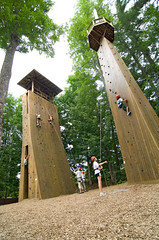 The camp experience is part of the heritage and culture of the United States, and for generations, American families have sent their children to camp—about 10 million children last year alone! As you can guess, each camp has it’s own story and distinct cultural and physical environment, so each camp experience is unique.
The camp experience is part of the heritage and culture of the United States, and for generations, American families have sent their children to camp—about 10 million children last year alone! As you can guess, each camp has it’s own story and distinct cultural and physical environment, so each camp experience is unique.
The American Camp Association (ACA) is the professional organization that educates camp owners and directors in the administration of key aspects of camp operation, program quality, and the health and safety of campers and staff. The ACA also establishes guidelines for policies, procedures, and practices when running a camp. Of course, Camp Laurel is a fully accredited member of the ACA. Each year, camp professionals gather for a national conference to discuss their work. Last year’s conference title alone, 20/20 Toolbox: Tomorrow’s Camps, Today’s Realities illustrates how camps are focused on creating the very best experiences for today and also into the future.
 The staff at Camp Laurel works all year to make sure that facilities are maintained and prepared for when camp is in session. There are so many details to take care of— from making sure that buildings are cared for, to improving camp facilities, adding or updating equipment and ensuring that health and safety codes are met. Camp owners and managers also have to keep up with changing demographics and expectations from their clientele. So long before campers arrive, camp staff are learning about new practices, meeting up to date regulations, putting current ideas into practice and working towards providing the best of the best. There are activities and events to plan, qualified counselors to recruit, ideas for even more fun than last year to implement and new campers to meet around the country. As camper’s needs and tastes change over the years, camp staff are dedicated to making each year as special as the last–and while traditions are an important part of camp life there is lots of room for fresh programs too.
The staff at Camp Laurel works all year to make sure that facilities are maintained and prepared for when camp is in session. There are so many details to take care of— from making sure that buildings are cared for, to improving camp facilities, adding or updating equipment and ensuring that health and safety codes are met. Camp owners and managers also have to keep up with changing demographics and expectations from their clientele. So long before campers arrive, camp staff are learning about new practices, meeting up to date regulations, putting current ideas into practice and working towards providing the best of the best. There are activities and events to plan, qualified counselors to recruit, ideas for even more fun than last year to implement and new campers to meet around the country. As camper’s needs and tastes change over the years, camp staff are dedicated to making each year as special as the last–and while traditions are an important part of camp life there is lots of room for fresh programs too.
 Here’s some of what’s happening at Camp Laurel. . .and what’s new for 2011. First, we’ve added a brand new Music and Recording Building for this summer. It’s a cutting-edge facility with separate studios for keyboard, guitar and drum lessons. For vocal ensembles, we have also added a state-of-the-art recording studio with the very latest in digital sound equipment. Laurel also added an amazing new Gaga Court and updated its fleet of watercraft with Four (Yes…4!) brand new Mastercraft Pro Star 197 Championship Tour Ski Boats and a new 16-Person Fishing San-Pan Pontoon Boat. That’s not all…we added a new Extreme Mountain Biking Track that’s out-of-sight AND underground-irrigated all our lawns and sports fields so we’ll be Laurel Green all summer long!
Here’s some of what’s happening at Camp Laurel. . .and what’s new for 2011. First, we’ve added a brand new Music and Recording Building for this summer. It’s a cutting-edge facility with separate studios for keyboard, guitar and drum lessons. For vocal ensembles, we have also added a state-of-the-art recording studio with the very latest in digital sound equipment. Laurel also added an amazing new Gaga Court and updated its fleet of watercraft with Four (Yes…4!) brand new Mastercraft Pro Star 197 Championship Tour Ski Boats and a new 16-Person Fishing San-Pan Pontoon Boat. That’s not all…we added a new Extreme Mountain Biking Track that’s out-of-sight AND underground-irrigated all our lawns and sports fields so we’ll be Laurel Green all summer long!
Emma

Thank you for the image whereareyousimon.


 While no actual human being develops in the precise
While no actual human being develops in the precise  As children mature, they continue to develop and require more experiences where they can make independent choices without parents. If parents don’t allow children to make decisions and do things on their own, they won’t develop confidence or realize that they are not just extensions of their caregivers. It’s a tricky line that parents walk! Sometimes giving child
As children mature, they continue to develop and require more experiences where they can make independent choices without parents. If parents don’t allow children to make decisions and do things on their own, they won’t develop confidence or realize that they are not just extensions of their caregivers. It’s a tricky line that parents walk! Sometimes giving child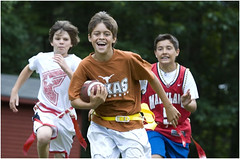
 Of course, the
Of course, the 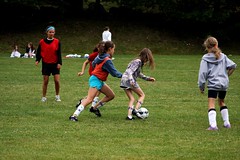 As parents, we are always on the lookout for experiences that help our children learn new skills. We enroll them in music lessons, martial arts, sports, theatre, choir and, of course, summer camps. But we all know that the best programs (and the best educational experiences) are ones that go beyond the basics of teaching skills to help develop our children’s character. The basics of character — trustworthiness, respect, responsibility, fairness, caring and citizenship — are all essential ingredients in summer camp experiences.
As parents, we are always on the lookout for experiences that help our children learn new skills. We enroll them in music lessons, martial arts, sports, theatre, choir and, of course, summer camps. But we all know that the best programs (and the best educational experiences) are ones that go beyond the basics of teaching skills to help develop our children’s character. The basics of character — trustworthiness, respect, responsibility, fairness, caring and citizenship — are all essential ingredients in summer camp experiences.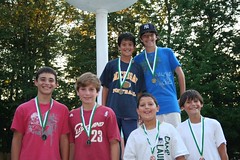 Everything we’ve written about on this blog so far — being ready for camp, unplugging from the digital world, traveling to camp, developing interpersonal communication skills, interacting with camp counselors, participating in camp traditions, and learning new sports and skills all contribute to building character.
Everything we’ve written about on this blog so far — being ready for camp, unplugging from the digital world, traveling to camp, developing interpersonal communication skills, interacting with camp counselors, participating in camp traditions, and learning new sports and skills all contribute to building character.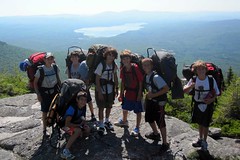 It’s no surprise, really. Camp activities, to be successful, require all the participants to have self-discipline and an unselfish sense of camaraderie. “There is just something about living with a group of boys,” mom Wendy says after sending her only son Justin to camp for the first time. Living communally in cabins and bunks requires teamwork, creativity and a willingness to work together.
It’s no surprise, really. Camp activities, to be successful, require all the participants to have self-discipline and an unselfish sense of camaraderie. “There is just something about living with a group of boys,” mom Wendy says after sending her only son Justin to camp for the first time. Living communally in cabins and bunks requires teamwork, creativity and a willingness to work together.
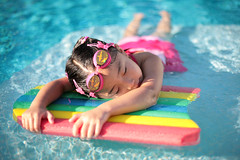

 The ways in which children understand and experience nature has changed beyond recognition for Americans born during the last two decades. While children today may be more aware of the global threats to our larger environment, they are much less aware of their immediate natural surroundings. As children, Louv and his peers may not have discussed global warming, or holes in the ozone layer, but they loved “their woods” and fields intimately and felt connected to the people and their location in the world. They identified specific bends and crooks in creeks and holes in backyards—explored the woods in solitude, lay in fields listening to the wind and marveled at clouds shape-shifting overhead.
The ways in which children understand and experience nature has changed beyond recognition for Americans born during the last two decades. While children today may be more aware of the global threats to our larger environment, they are much less aware of their immediate natural surroundings. As children, Louv and his peers may not have discussed global warming, or holes in the ozone layer, but they loved “their woods” and fields intimately and felt connected to the people and their location in the world. They identified specific bends and crooks in creeks and holes in backyards—explored the woods in solitude, lay in fields listening to the wind and marveled at clouds shape-shifting overhead. Louv discovered that
Louv discovered that 
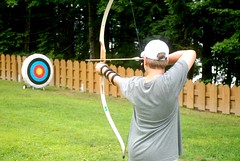 Many families are surprised at the sheer amount of first-time experiences their kids have at summer camp. When Justin, a 12 year old who attended camp this year, was asked to list things he did for the first time at camp, he had quite the list. “I learned how to play guitar, archery, and golf,” he said. During our conversation, it also came out that he also learned new baseball skills and got to play tennis. He also experienced the camp evening programs for the first time, which he raved about as being “fun and creative.” Justin’s going to be talking to a lot of people about camp when he goes back to school. And what is he going to tell them? “I made a lot of new friends and tried a lot of new things. I had the best time!”
Many families are surprised at the sheer amount of first-time experiences their kids have at summer camp. When Justin, a 12 year old who attended camp this year, was asked to list things he did for the first time at camp, he had quite the list. “I learned how to play guitar, archery, and golf,” he said. During our conversation, it also came out that he also learned new baseball skills and got to play tennis. He also experienced the camp evening programs for the first time, which he raved about as being “fun and creative.” Justin’s going to be talking to a lot of people about camp when he goes back to school. And what is he going to tell them? “I made a lot of new friends and tried a lot of new things. I had the best time!”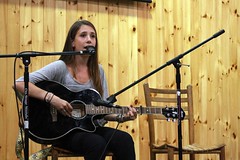 With today’s technology, however, the summer camp community can stay together all year, even when they return to the home cities, states and countries. We have an active Facebook community where current campers, families and alumni can connect, share stories and keep up to date with the staff and the current session. Much of the chatter is about how much everyone misses camp and wishes they were back on the lake, riding the horses, singing in the dining hall, etc. For those who’ve connected to Camp Laurel through
With today’s technology, however, the summer camp community can stay together all year, even when they return to the home cities, states and countries. We have an active Facebook community where current campers, families and alumni can connect, share stories and keep up to date with the staff and the current session. Much of the chatter is about how much everyone misses camp and wishes they were back on the lake, riding the horses, singing in the dining hall, etc. For those who’ve connected to Camp Laurel through 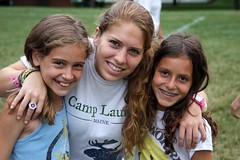
 …do a flip off the Mini-Tramp.
…do a flip off the Mini-Tramp. … flop in the lake…
… flop in the lake…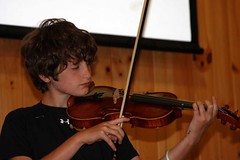 Summer camps make a huge difference in the year-round education of our children, but it may require a shift in our thinking about what education is and can be. The
Summer camps make a huge difference in the year-round education of our children, but it may require a shift in our thinking about what education is and can be. The 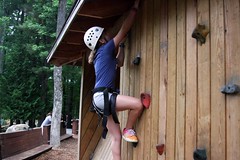 So what kind of difference can summer camp make to your child’s development? As the Executive Director of the
So what kind of difference can summer camp make to your child’s development? As the Executive Director of the Cabinmates must also learn how to navigate the waters of communal decisionmaking. They must work through the inevitable issues and conflicts that come up in cabin living — and they must learn to adapt and get along when things don’t go their way. They learn to live by the will of the majority, while at the same time respecting the needs of others who represent the minority. Again, according to the
Cabinmates must also learn how to navigate the waters of communal decisionmaking. They must work through the inevitable issues and conflicts that come up in cabin living — and they must learn to adapt and get along when things don’t go their way. They learn to live by the will of the majority, while at the same time respecting the needs of others who represent the minority. Again, according to the 
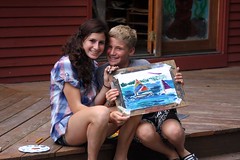
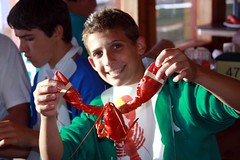
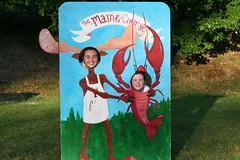 Quest is a tradition that goes back 60 years. During the first week of summer, campers are divided into 18 different teams and they compete in fun and zany activities all day long. The winners are treated to a gourmet Chinese dinner at the home of directors Jem and Debbie. We usually think of big all-camp activities happening at the end of the summer, but Quest brings campers together within days of their arrival, kicking off a summer of friendship and bonding, gathering force as the camp progresses.
Quest is a tradition that goes back 60 years. During the first week of summer, campers are divided into 18 different teams and they compete in fun and zany activities all day long. The winners are treated to a gourmet Chinese dinner at the home of directors Jem and Debbie. We usually think of big all-camp activities happening at the end of the summer, but Quest brings campers together within days of their arrival, kicking off a summer of friendship and bonding, gathering force as the camp progresses.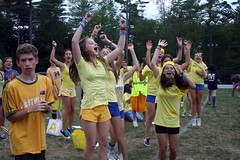 Laurel also hosts College Days and Lobster and Steak Banquet. College Days (which lasts five days!) is Laurel’s answer to the camp color war and includes spirit, fun, games, tug ‘o war, swim meets, track meets, staff competitions, Apache relays, silent meals, treasure hunts, dance competitions and much more. Laurel then finishes camp with a flourish by hosting a meal with lobster direct from the sea. After all, who could come to camp in Maine and not love lobster? The campers finish their summer with speeches, traditional songs and a night sleeping under the stars.
Laurel also hosts College Days and Lobster and Steak Banquet. College Days (which lasts five days!) is Laurel’s answer to the camp color war and includes spirit, fun, games, tug ‘o war, swim meets, track meets, staff competitions, Apache relays, silent meals, treasure hunts, dance competitions and much more. Laurel then finishes camp with a flourish by hosting a meal with lobster direct from the sea. After all, who could come to camp in Maine and not love lobster? The campers finish their summer with speeches, traditional songs and a night sleeping under the stars.